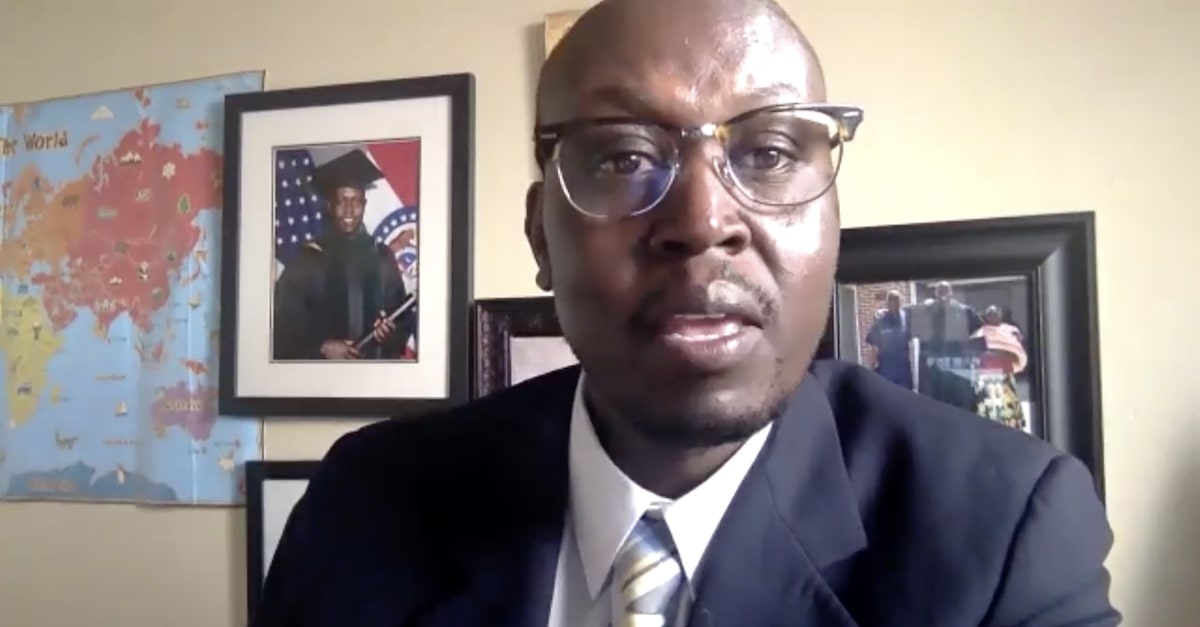
Baiywo Rop
Now that a Florida judge has nullified the more than $2.75 million discrimination verdict that a jury awarded to a Black doctor of Kenyan descent, the hospital the man sued wants stick him with the bill.
The Sunshine State’s second-largest employer, Adventist Health System, asked a judge to saddle Dr. Baiywo Rop with more than $230,000 in attorney fees and costs in a pair of filings on Friday. In a 24-page motion, the hospital argues that Rop produced no evidence of bias based on national origin and race—despite the findings of a six-member jury to the contrary.
“Indeed, after having over three years of opportunity during discovery, [Rop] was unable during presentation of evidence to the jury in this matter, to present any evidence at all of discrimination based on any disability or based on national origin (or race),” attorney Kimberly J. Doud, from the Orlando-based firm Littler Mendelson, wrote.
A jury from the Circuit Court of the Ninth Judicial Circuit in Orange County, Florida, found otherwise following a trial earlier this year between May 14 and 21.
Circuit Judge Kevin Weiss, however, vacated the jury’s findings of racial and national origin discrimination, finding “legitimate, non-discriminatory and non-retaliatory reasons” for Dr. Rop’s dismissal. The four-page ruling leaves little explanation as to what those reasons were, but the directed verdict decision says the jury should not have been allowed to hear a “convincing mosaic” of circumstantial evidence that would have allowed an inference of discrimination.
Under Florida law, judges are allowed to issue a directed verdict if a party (here, the employer) requests one and if “there is no evidence or reasonable inference therefrom supporting a verdict for the other party” (here, the employee). But it “rarely happens,” as one employment law firm points out.
Now, in a bid to complete the reversal of fortune, lawyers for Adventist want Judge Weiss to find the allegations that passed a jury’s muster “frivolous”—a word used six times in their motion.
“Despite having had three and a half years to find pertinent evidence of any kind to support his theory similarly situated non-Black employees were treated more favorably than he was, [Rop] did nothing to back up the frivolous allegations in his Complaint of race discrimination,” the hospital’s motion states. “Instead, he continued to litigate baselessly, forcing Florida Hospital to continue to expend money in defense of the unsupportable allegations.”
Rop’s lawyer Jerry Girley, who is appealing Judge Weiss’s decision, did not immediately respond to an email seeking comment.
If granted by the judge, the attorney’s fee would mark yet another dramatic turn in Dr. Rop’s journey. A Kenyan native, Rop pursued his radiology residency in the Adventist-run Florida Hospital. Rop says he graduated medical school in 2012 before being accepted for a radiology residency the next year.
In 2015, Rop was diagnosed with severe pernicious anemia, and he says that his employer would not accommodate his condition.
According to his lawsuit, Rop was falsely accused of laziness and drug abuse, through racial stereotypes.
“Apparently, they made an assumption that I smoked weed, and I overheard an attending saying, ‘Oh, he needs to stop smoking weed,’” Rop recounted in a recent episode of Law&Crime’s podcast “Objections: with Adam Klasfeld.”
On the episode, his lawyer, Girley, recounted invoking a less-remembered passage of Martin Luther King’s “I Have a Dream” speech before the jury.
Alluding to the proverbial “bank of justice,” King likened the Declaration of Independence’s promise of “inalienable rights” to a “bad check” to the nation’s Black people.
“So what we said to the jury is, ‘Look, here we are again at the Bank of Justice,’” Girley recalled on the podcast. “Promises have been made. You have the authority, the ability to pay this check. It is a payment on a promise that was made hundreds of years ago. It is a payment on the notion the concept of equality before the law.”
Doud did not immediately respond to questions seeking clarification on the hospital’s argument that jury-supported allegations were in fact “frivolous” enough to warrant attorney’s fees.
Listen to the podcast here:
Read the motion below:
[Photo from Zoom interview]
Have a tip we should know? [email protected]